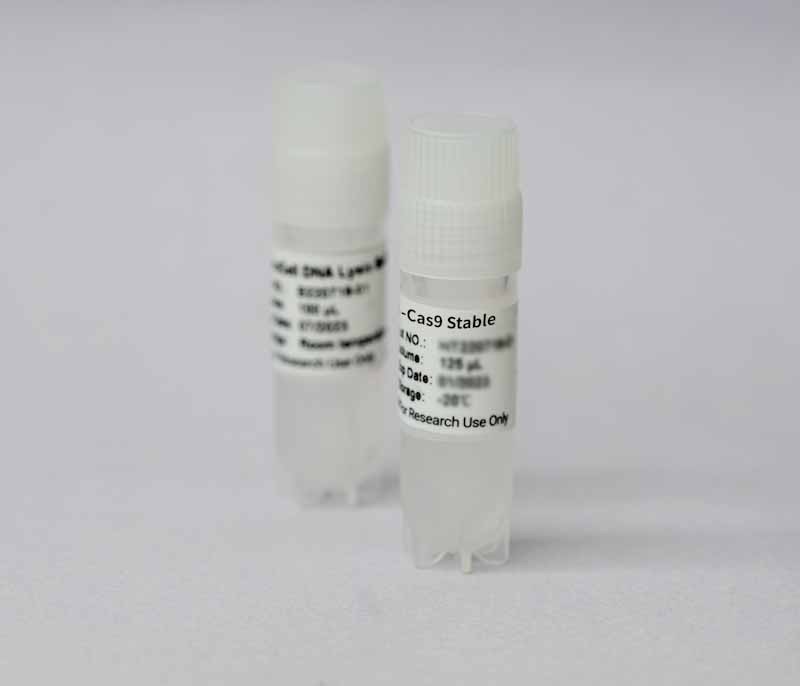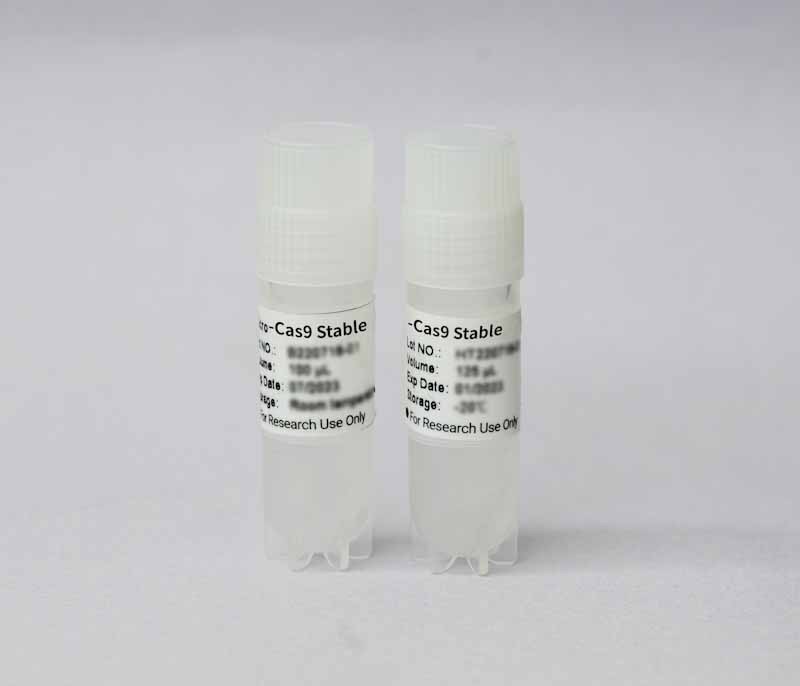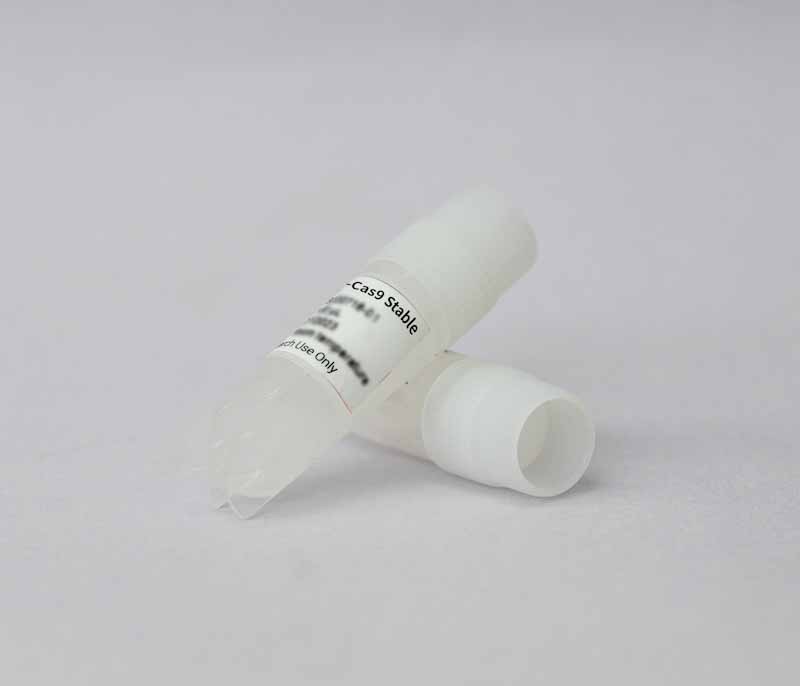HEK 293-CAS9
Price :
$1580
$2080
Catalog No. :
VAS2B010
Size :
1*10^6
Lead time :
2-3 weeks
This HEK 293 Cas9 stable cell line is made by lentivirus. Cas9 is stably expressed, and the Cas9 activity is validated by gene editing experiments. It is available in stock, and the lead time is 2-3 weeks. Please feel free to contact us for more cell information and order placing.
Product name
HEK 293-CAS9Catalog No.
VAS2B010Expressed protein
Cas9 NucleaseGenotype
Multi-clonalSelection marker
-Host cell line
Human Embryonic Kidney Cell Line (HEK 293)Adherent /Suspension
AdherentMorphology
Epithelial-likeBiosafety level
2STR profiling
D5S818: 8,8; D13S317: 12,14; D7S820: 11,12; D16S539: 9,13; vWA: 16,19; THO1: 7,9.3; Amelogenin: X,X; TPOX: 11,11; CSF1PO: 12,12Application
Gene editing (knockout, point mutation and tag knockin)CRISPR library screening
Vitro Biotech offers cell engineering products and services about KO cells, Luciferase cells, Cas9 expressing cell lines, and various stable cell lines.




2.Remove the frozen cells from the dry ice packaging and immediately place the cells at a temperature below -130°C, preferably in liquid nitrogen vapor, until ready for use. Please do not store at -80°C. Storage at -80°C may result in loss of viability.
2.Gently agitate the vial in a 37°C water bath to thaw. Please keep the O-ring and cap out of the water. Thawing should be rapid (approximately 1-2 minutes).
3.Remove the vial from the water bath as soon as the contents are thawed, and decontaminate by spraying with 70% ethanol or wiping with an alcohol cotton pellet. All of the operations from this point on should be carried out in the hood and under strict aseptic conditions.
4.Transfer the vial contents to the step 1 centrifuge tube containing 6-7 mL complete culture medium. And spin at 1100 rpm for 4 mins at room temp to collect the cells.
5.Resuspend cell pellet with 1ml recommended complete medium. And dispense into a T25 flask (or 6 cm culture dish) containing 4 mL of complete medium. (Note: It is suggested that, prior to the addition of the vial contents, the culture vessel containing the complete growth medium be placed into the incubator for at least 15 minutes to allow the medium to reach its normal pH 7.0 to 7.6.)
6.Incubate the culture at 37°C in a suitable incubator. A 5% CO2 in air atmosphere is recommended if using the medium described on this product sheet.
2.Rinse the cells 1-2 times with 1xPBS (2-3mL for T25 flask, increase or decrease the amount needed proportionally for culture vessels of other sizes) to remove residual medium and serum.
3.Add 1 mL of Trypsin-EDTA solution to T25 flask (increase or decrease the amount needed proportionally for culture vessels of other sizes) allow trypsin completely cover the cells, then place the flask into the incubator and incubate for 1-2 mins (if cells are hard to detach, allow appropriate extension of incubation), and observe cells under an inverted microscope until cell layer is dispersed. (Note: To avoid clumping do not agitate the cells by hitting or shaking the flask while waiting for the cells to detach.)
4.Add 2 times of trypsin vloume of complete growth medium to stop digestion, and aspirate cells by gently pipetting.
5.Transfer the cell suspension with a 10 mL pipette into a 50 mL centrifuge tube, rinse the residual cells from the flask with PBS , then collect to the centrifuge tube.
6.Centrifuge at 1100 rpm for 4 mins at room temp. Then remove and discard the supernatant and resuspend the cells with 2 mL of complete medium.
7.Dispense the cells into a suitable culture vessel containing corresponding amount of complete medium.
8.Incubate cultures at 37°C.